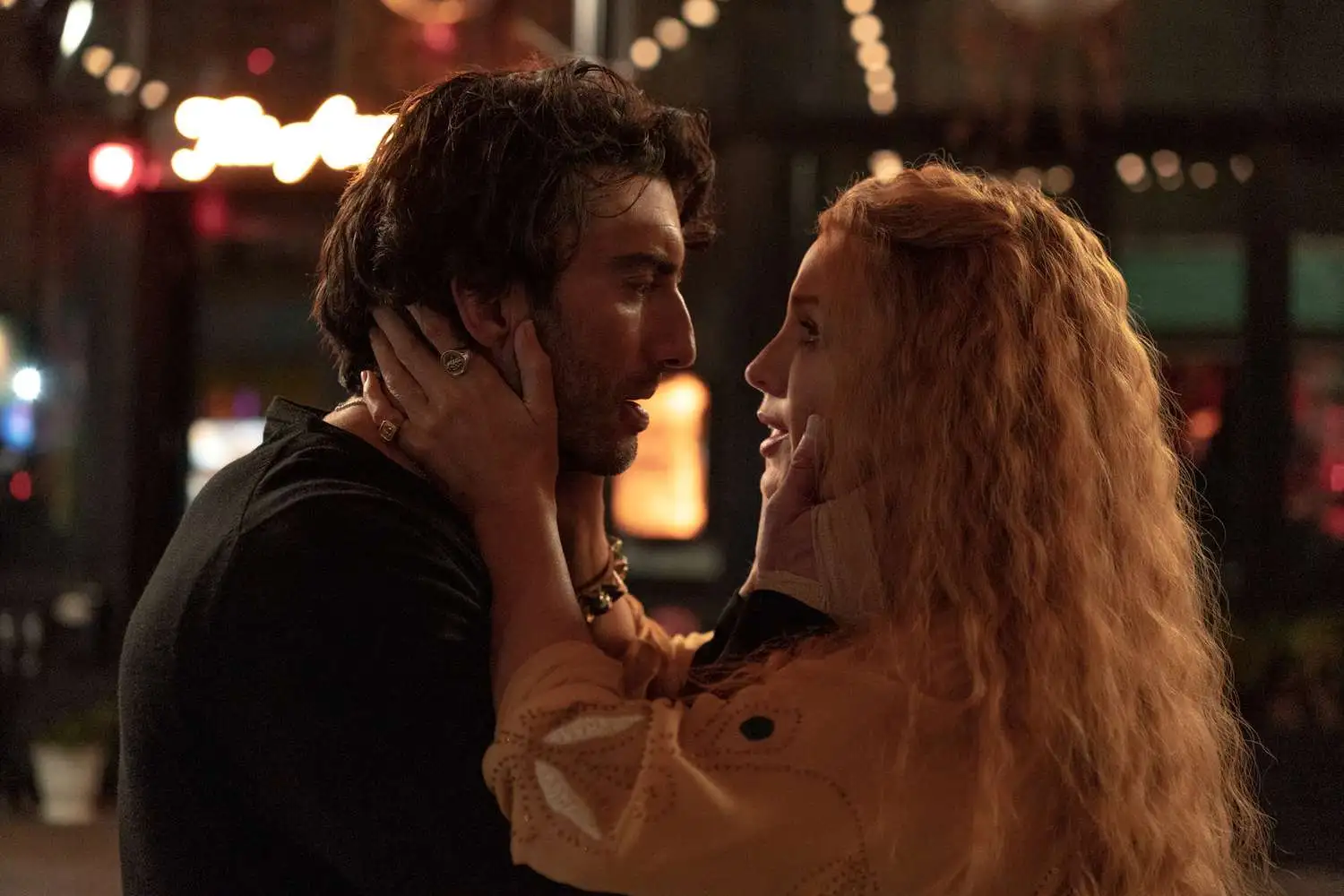Film Review: It Ends With Us
Film
It Ends With Us
Director: Justin Baldoni
Wayfarer Studios and Saks Picture Company
In Theaters: 08.09
In August, the major Hollywood studios and the general public have both used up their supply of fireworks, but they still crave new entertainment. This makes it a prime month for more grown up blockbusters. Whether it’s Unforgiven, The Fugitive, The Sixth Sense or Crazy Rich Asians, I’m always eager to see what kind of meatier fare Hollywood has got sizzling on the barbecue, hoping for something great. This week, It Ends With Us arrives in theaters to firmly dash those hopes.
It Ends With Us follows Lily Bloom (Blake Lively, The Shallows, A Simple Twist of Fate), a woman who grew up in an unhappy home where her father physically abused her mother and is starting a new life in Boston, opening up a flower shop (yes, her name is Lily Bloom and she is a florist). When a chance meet cute on a rooftop brings a handsome neurosurgeon named Ryle Kincaid (Justin Baldoni, who also directs the film) into her life, she tries not to fall for him, but his persistence eventually pays off, and a whirlwind romance leads to the two eloping. Their life together becomes a bit more complicated when Lily has another chance encounter, this time with her first love, a restaurateur named Atlas Corrigan (Brandon Sklenar, Midway, Vice), whom she hasn’t seen since she was a homeless teen.The former boyfriend coming back into her life gets Ryle, who is starting to show a less attractive side of his personality, including a possessive nature and a temper. When Atlas sees bruises on Lily, he suspects that she might be “turning into her mother” and be trapped in a cycle of abuse with Ryle. When Lily gets pregnant, she is forced to do serious soul searching about her past, her present, her future and which of these two guys has the stupidest name. As she faces difficult choices, Lily must put her faith in own strength and the power of formulaic plotting to find peace.
It Ends With Us in based on the bestselling novel by Colleen Hoover, and has a certain built in audience. The melodramatic manipulations of the material itself, and Baldoni’s overly glossy and beautified visual style, lead to a film that is so caught up in the romance of it all that the messaging here is intensely problematic. In an effort to keep the movie safely within PG-13 boundaries and marketable as an uplifting date night or book club movie, or perhaps because he thinks he’s being clever, Baldoni takes a rather soft approach to the domestic violence. We don’t actually see anything when it happens, until Lily has a trigger moment when she suddenly realizes that all of the incidents she’s told herself and others were accidents were not accidents, and then we get a very sterile series of quick cuts where we see a hand lashing out or a push. While I’m all for avoiding wallowing in violence, Baldoni keeps it so watered down that there’s little impact in a story that could have something important to say. It’s completely limp, and it all has such a soap opera quality to it that there’s no power to the story. It’s mired in silly contrivances and cutesiness so much so that the romance far overpowers the harsher truths of the story. The screenplay by Christy Hall (Daddio) is significantly hampered by the shortcomings of the source material, and cheesy dialogue abounds (“If you ever find yourself feeling safe to love again, just fall in love with me.”). It’s also laboriously long, with a pacing that is slow and ponderous.
Lively doesn’t quite live up to her name, giving a performance that is competent yet rarely engaging, with a detached listlessness that doesn’t serve the character. The film makes use of frequent flashbacks, showing Lily and Atlas as teens played by twentysomethings. Isabelea Ferrer (Fire Burning) is such an astonishing lookalike that I didn’t even realize that there were, in fact, flashbacks until she tells teen Atlas (Alex Neustaedter, Things Heard and Seen)—who looks like he could be teaching high school rather than attending it—that he can come over because her parents aren’t home. Baldoni is an engaging presence on camera, though this is the kind of film where one gets a strong sense that the director is quite enamored with their lead actor, and in this case, they are the same person. So much time is spent on making Baldoni the actor irresistible that it feels laughably self serving. Jenny Slate (Obvious Child) is lovable as Lily’s best friend and Ryle’s sister, Alyssa, though it’s such a stock character that there’s only so much she can do with it.
It Ends With Us is worse than just a bad movie. It’s a movie that doesn’t just squander its opportunity to say something meaningful, it surrounds the intended message with so much treacle and cornball phoniness that it comes dangerously close to romanticized domestic abuse, sending the message that the key to finding the strength to leave a toxic partner is having a substitute who is ready to get off the bench and get in the game with you. It’s a little over two hours of my life that I will never get back, and I’ll plan to hold on to that resentment for a while. –Patrick Gibbs
Read more film reviews:
Film Review: The Instigators
Film Review: Harold and the Purple Crayon

